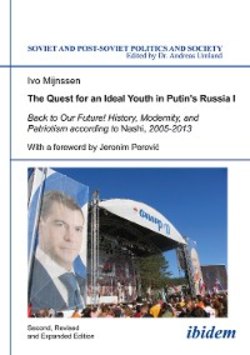Читать книгу The Quest for an Ideal Youth in Putin's Russia I - Ivo Mijnssen - Страница 5
Foreword
ОглавлениеOn 7 May 2012, Vladimir Putin was inaugurated as President of the Russian Federation, reclaiming the office he held from 2000 to 2008 and resuming the mantle of power that he had never fully relinquished to Dmitry Medvedev. Looking back at past achievements, he declared in his inaugural speech that we «strengthened our country and returned our dignity as a great nation», so that the «world has seen Russia risen anew». The new Russia Putin intends to build is a Russia looking back. The dignity restored means a correction of past errors, the biggest of which Putin sees in the decision to dissolve the Soviet Union, an event that he once described as the «greatest geopolitical catastrophe» of the 20th century. While Putin recognizes that a return to Soviet times is impossible, he promised in his inaugural speech to make Russia the «leader and centre of gravity for the whole of Eurasia». He has the country’s «great past» and its «hundreds of years of history» in mind, thus, if not explicitly, holding up the imperial era as a model for the future.
Russia’s still considerable military, political and economic weight, as well as its crucial importance as an energy supplier to Europe, mean that the West cannot afford to ignore developments in this country. Either way Russia turns will affect stability and security on the Eurasian continent. Russia’s actions in the recent past, repeatedly cutting energy supplies to costumers west of its borders, invading Georgia in August 2008 with disproportionate use of force, suppressing free media, and cracking down on political opposition all clearly point toward a less cooperative Russia when dealing with the West, a more aggressive Russia when defending interests in its near abroad, and a more authoritarian system domestically. Yet if most would agree that Russia has become more assertive under Putin’s leadership, few understand the ideological and sociopolitical underpinnings of this development. If official rhetoric and behavior tell only half of the story at best, then it is necessary to take a deep look into society itself.
Ivo Mijnssen chose to do precisely this when he examined the Russian youth organization called The Democratic Anti-Fascist Youth Movement ‘Nashi’.
